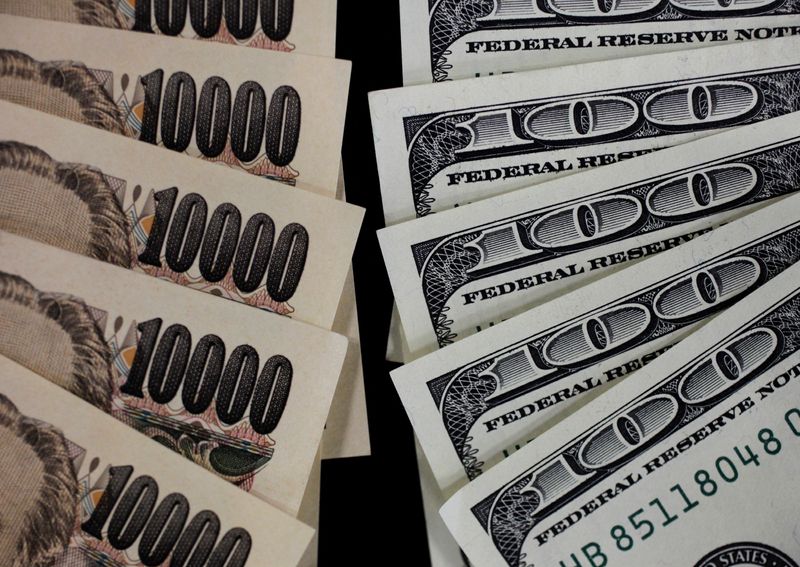By Tetsushi Kajimoto
TOKYO (Reuters) - Japan's foreign reserves extended declines in October, following the previous month's record drop, the Ministry of Finance said on Tuesday, reflecting the largest ever amount of yen-buying, dollar-selling intervention.
The data comes alongside separate figures that confirmed Japan did not conduct stealth intervention in September and only entered the market to buy yen for U.S. dollars on Sept. 22 as announced, its first foray into the market to prop up the Japanese currency since 1998.
Market players are scrutinising Japan's vast pool of foreign assets and intervention records for clues on how much more Japan might be willing to spend in its forays into the currency market, though authorities remain tight-lipped on intervention.
"I wouldn't be surprised if authorities conduct intervention one more time if dollar gains accelerate to hit new high beyond 152 yen," said Tohru Sasaki, head of Japan Markets Research at JPMorgan Chase (NYSE:JPM) Bank.
"But I don't think Japan can continue large-scale intervention selling U.S. Treasuries to buy the yen indefinitely. There should be a limit given relations with its ally the United States."
Japanese officials have said they keep in close contact with U.S. counterparts, brushing aside speculation of U.S. opposition to dollar-selling intervention to weaken a currency while the United States is raising interest rates to battle inflation.
Japan's foreign reserves fell for a third consecutive month to $1.19 trillion as at the end of October, still the world's second-largest after China, the ministry said. The decline of $43.5 billion marked the second sharpest month-on-month on record.
The currency intervention and rising foreign bond yields more than offset other factors that would support reserves, such as higher valuations of other foreign assets and income gains from foreign bond holdings, officials said.
Graphic: Japan's falling reserves - https://graphics.reuters.com/JAPAN-YEN/akpeqgwyepr/chart.png
By asset type, foreign bonds - most of which are widely believed to be U.S. Treasuries, bought during bouts of dollar-buying intervention in the past when the yen was strong - account for four-fifths of the reserves.
Of the reserves, foreign bonds fell the most in September and suffered the second-largest drop last month to $941 billion. Officials would not elaborate but market watchers interpret the drops as reflecting the sale of U.S. Treasuries for yen-buying intervention.
Deposits - mostly parked at overseas central banks and the Bank for International Settlements, which make up some one-tenth of the reserves and can be readily converted into cash - grew for a second consecutive month to $137 billion in October.
Separate data on intervention, which includes quarterly and daily totals, confirmed that authorities did not conduct stealth intervention in September, having spent 2.8 trillion yen that month to support the yen.
Japan spent a record 6.35 trillion yen on intervention last month as the yen hit a 32-year low near 152 yen to the dollar.

The yen has remained under pressure as the Bank of Japan remains committed to keeping ultra-low interest rates, in sharp contrast to aggressive rate hikes by the U.S. Federal Reserve.
($1 = 146.8700 yen)